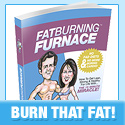With free time in short supply, worries to shoulder and active family and social lives, far too many of us find ourselves caught in a non-stop whirl. The all-too-common result is stress burnout, a topic of major concern for leading psychological researchers and hundreds of thousands of victims each year.
Chances are you’ve felt the symptoms – knots in your neck, butterflies in the stomach, irritability. Stress can get a lot worse, though, and if it’s bottled up it can be a potent and disruptive force to the healthy body and mind.
So what do you do when you find yourself grinding your teeth? The cure might be a good workout. Recent research has once again affirmed common sense: getting the heart pumping and letting the sweat start to flow can tone your attitude as much as it forms your physique.
As a whole, people who exercise regularly and take athletic time out to blow off steam can manage stress better.
Besides, as a weapon against stress, exercise is healthier than having a drink and cheaper than visiting a psychiatrist. And it works.
WHY WORK OUT?
What we commonly know as “bad stress” – tension – is actually an instinctual, physiological reaction that enabled our prehistoric forefathers to survive the dangers of the wild.
When you perceive a danger or threat, your body assumes the well-known “fight or flight” mode that prepares you to defend yourself against attack. The hypothalamus region of the brain sends a message to the pituitary gland to secrete cortisol, “the stress hormone”, into your bloodstream. In the chain reaction that follows, signals begin rushing to all parts of your body. Adrenaline pours into your bloodstream, your heart beats faster, your blood pressure increases and your breathing gets heavy. You’re ready for action. Usually, though, the opportunity for physical release isn’t there; you merely sit and seethe. Though the stressful event may be over, the lack of reaction means that those chemicals remain in your bloodstream. Over a prolonged period, they can become overwhelming – even leading to high blood pressure, hypertension or a nervous breakdown.
Dr. Hans Selye, a pioneer in the study of stress and author of ‘Stress Without Distress’, explains that we have a three-step reaction to stress. First, we experience a stage of initial alarm. Followed by a stage of adaptation or resistance, and finally, we are exhausted. If we don’t move all the way through these stages, stress gets bottled up inside – a cumulative and insidious process.
Of course, exercise isn’t going to be any help at all if it only adds more stress to a tension-ridden life. So don’t create a situation where it means a rush-hour train journey to the gym, signing up for a class you won’t able to make, or spending more money than you can reasonably afford. But take heart, almost any regular muscle-moving activity, no matter how offbeat or humble, is stress-reducing. In fact, Selye goes so far as to call exercise “good stress.”
HOW TO WORK OUT?
Joining the local football team, playing tennis at the club, and going out dancing are all great ways to blow off steam. The reason is that they incorporate aerobic exercise.
When you hear the word aerobic, don’t think only of tummy-tightening calisthenics in leotards. Any exercise is classified as aerobic if it increases your breathing rate without leaving you out of breath, and makes your heart and lungs work to supply more oxygenated blood to the muscles in action.
The best aerobic sports are swimming, bicycling, jogging, tennis and racquet-ball. Team sports that involve running, throwing and agility are good too (however, you can be somewhat more prone to injury). All of them will prove physically beneficial if you do them consistently, and they can offer just the tension-busting release you need to unwind, breathe deep and put things in perspective.
Pick an activity you enjoy and not one that’s going to make you even more stressed. Depending upon your level of fitness when beginning an aerobic exercise, walking may be the right exercise to meet your stress reduction needs. Consult your doctor when designing any anti-stress exercise regimen.
Those who work out regularly have expressed amazement at how the addition of an exercise programme into their daily routines can make a difference in their attitudes, their health and even their sex lives.
The human body wasn’t designed to sit at a desk; we were built to be movers and shakers in the physical, not the corporate sense. When you give your body the outlet it’s begging for, symptoms from listlessness to reduced sex drive to tension headaches often mysteriously disappear.
And you’ll learn to deal with stress better over time. Dr. Kenneth Cooper, founder of the Institute for Aerobics Research in Dallas observes: “Aerobically fit people actually have lower heart rates during stressful situations than people who aren’t fit.”
HOW TO START?
Follow these general stress reduction guidelines:
Work out hard enough but not too hard. When you perform aerobic exercises, your goal should be to get the heart pumping to 70 per cent of its maximum capacity. Once you’ve hit this point, you should maintain it for about 20 minutes. A good rule of thumb for determining how hard you should do an aerobic exercise is that you should be able to hold a conversation at the same time.
Also, pick a place to do it that makes you comfortable. Try to schedule your workout at a convenient time, and stick to it. Nothing will make you more tense than feeling obligated instead of inspired to get your body moving.
And don’t expect too much at once. Remember, as with all activities, you only get out as much as you put in.
CHEMICAL REACTION
As you get into the groove of stress-reducing exercise, you’re likely to discover yet another benefit – it can actually get you high.
When you work out, your body secretes endorphins, those morphine-like substances that are often responsible for the euphoric feeling called “runner’s high.” These same endorphins that make you feel good during a workout can be a powerful weapon in your war against stress.
When tension sets in, endorphins are released into your bloodstream along with the cortisol hormone, and the combination can go a long way toward offsetting bad feelings. You only reap this benefit once you’re in good physical condition.
Though research is ongoing, some scientists claim that endorphins have a stabilizing effect upon the hormones (like cortisol) released during stress, tempering the negative effects on the body. According to Dr. Daniel Landers, professor of Physical Education at Arizona State University, “If you block the effects of endorphins, the heart rate goes up to twice the normal level.”
The bottom line is that not only does exercise help offset the stress you’ve already endured, it goes a long way in preparing you to deal with those increasing tensions yet to come.
All this shouldn’t make you think aerobic exercise is the end-all and be-all of body and mind conditioning techniques. It still has its limitations. If you don’t work out on a regular basis, the best exercise will do little or nothing to improve your reaction to stress, and it may even make stress worse by increasing your heartbeat intermittently between periods of inactivity.
There are chemical disadvantages to working out sporadically as well. If it is unaccustomed to the exercise, your body will not increase its endorphin levels until after the workout is over, in which case they might act to dull pain of strained, out-of-shape muscles, but will be released much too late to counter the stress hormone in your system.
Once you’ve built up your heart and turned yourself into a super-efficient stress-busting machine, it’s time for the next step: learning how to relax.
For ultimate stress relief, consider those activities that take you into the great outdoors. Whether you work out in the open air every day or supplement an indoor-gym programme with occasional jaunts across mother earth, you’ll find that a little communing with nature can go a long way in melting away stress.
Most importantly – enjoy it. As the Simon & Garfunkle song says, “Slow down, you move too fast, you’ve got to make the morning last… “
Make it last with some sports activity that makes you happy. And the next time you feel like blowing your top, you might just find you can cope a little bit better.




